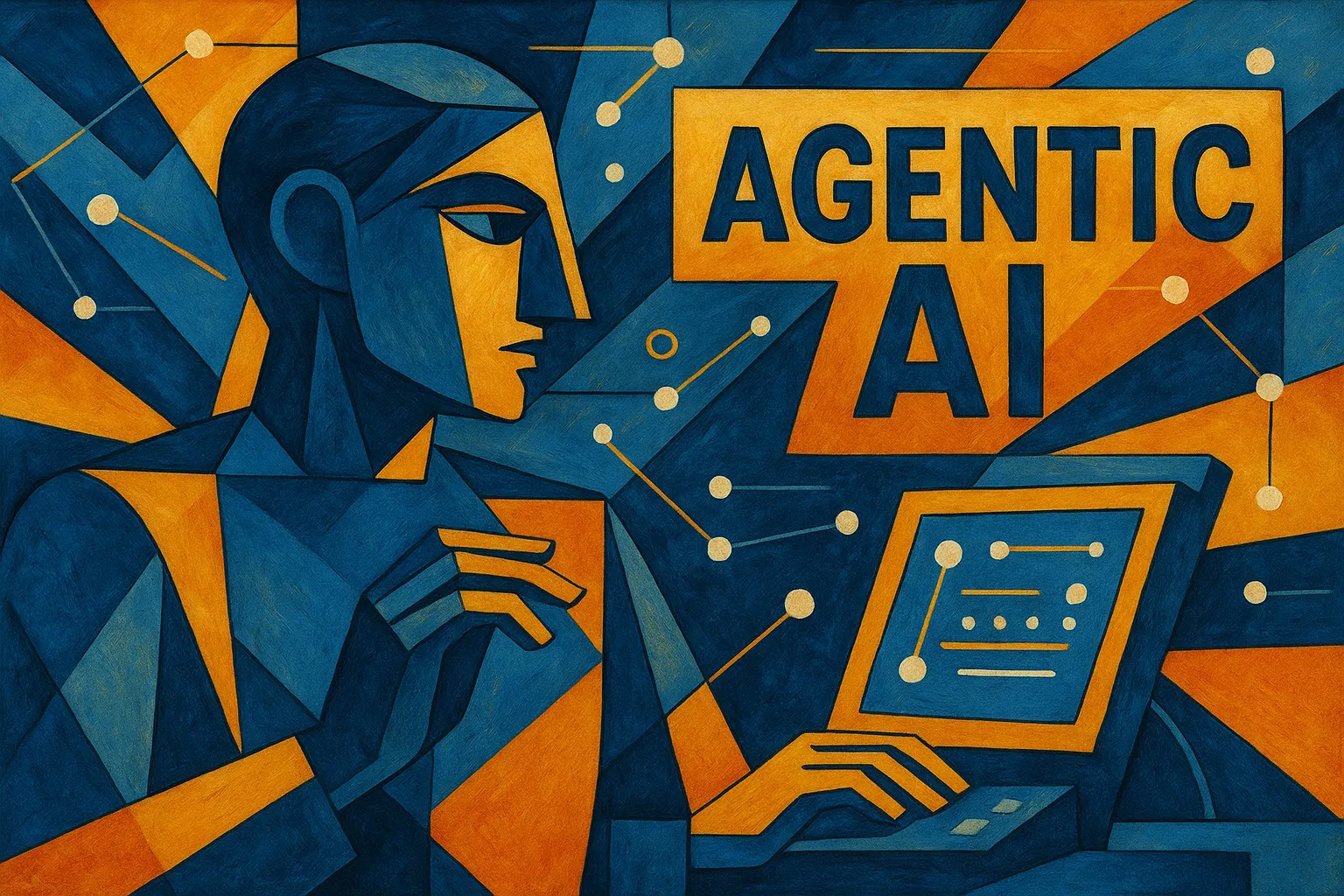What Is the Foundation of Autonomous Artificial Intelligence
With artificial intelligence continually transforming sectors and redefining productivity, one powerful concept is increasingly gaining traction in business, research, and development circles: agentic AI. Far from a fleeting trend, agentic AI represents a groundbreaking shift in how smart systems interact with data, tools, and human purpose.
At its core, this development is the AI agent an autonomous, goal oriented system with the capacity for perception, reason, and action.
We address here what constitutes an AI agent, how agentic AI works, and why it constitutes the next necessary layer of intelligent technology evolution.
Defining AI Agents
An AI agent is a self sustaining entity designed to achieve tasks by planning, reasoning, and acting upon its surroundings often using the assistance of external tools and systems to achieve complex objectives. Compared to passive models that produce static outputs, agents operate dynamically, typically changing their strategy in response to feedback and context.
Agentic AI thus refers to artificial intelligence built on this agency model: not merely systems that can know, but systems that can decide, decompose tasks, and execute multistep workflows on their own.
This is a break from static response engines towards real time decision making, adaptive problem solving, and context aware interaction.
The Core Architecture of Agentic AI
AI agents are typically motivated by LLMs but their design is more than text generation. At a high level, a good agentic system has three principal layers:
- Goal Initialization and Task Planning: An agent begins from a specific objective triggered by a user or a system. Thence, it decomposes the work itself into subtasks, defines what is required to accomplish it, and determines what tool or resource to utilize.
- Tool Interaction and Execution: To achieve its objectives, the agent can call APIs, databases, search engines, software applications, or even other artificial intelligence systems. Through this tool, the agent can acquire new knowledge, verify hypotheses, and take real world actions.
- Reflection, Learning, and Memory: Some agents are also designed to hold memory, look back over results, and improve future decisions. Agents become increasingly intelligent with iterative learning, adapting to user habits and task patterns.
Why Agentic AI Matters
Agentic AI is not just a technological breakthrough it is a conceptual breakthrough in the way intelligence is deployed.
Where traditional models react to queries, agents act. Agents translate commands into outcomes. They can act in concert on their own across tools and systems, reducing the requirement for people to step in for repetitive, complicated, or context dependent tasks.
This capability extends far beyond its immediate uses:
- In companies: Agents can orchestrate workflows, execute processes, and aid decision making at scale.
- In development: Agents are able to interact with code, test environments, and version control systems to support software engineering.
- In personal productivity: Agents are able to perform as intelligent assistants—managing tasks, information searching, and digital experience personalization.
Agentic AI brings a more collaborative, human centered version of artificial intelligence one that supports human thinking instead of merely imitating it.
Designing for Autonomy and Control
Although it is promising, agentic AI must be deployed carefully. As agents are capable of making autonomous choices and impacting external systems, suitable guardrails, transparency, and observation must be in place.
Good agentic systems include:
- Activity traces to ensure accountability and traceability.
- Interruptibility mechanisms to allow graceful shutdown when appropriate.
- Tool constraints to control access and avoid unwanted actions.
- Human in the loop aspects in high impact scenarios.
These methods give the agent the power to work predictably, safely, and in harmony with user intent and organizational conventions.
Looking Ahead
Agentic AI is creating the foundation for the intelligent systems of tomorrow. From enterprise automation to personal assistance, the agent based paradigm introduces a new paradigm for artificial intelligence to act—not just react.
As the tech comes of age, we can expect more and more generalized, adaptable agents that move seamlessly from platform to platform, from industry to industry, and workflow to workflow. Their value isn't in what they can automate, but in how they think, adapt, and collaborate to accomplish human stuff.
This is not language understanding AI. This is AI that delivers.
Coming soon: In part two of this series, we'll explore the differences between agentic AI and generative AI, and how these distinctions shape the future of intelligent assistants and digital experiences.
